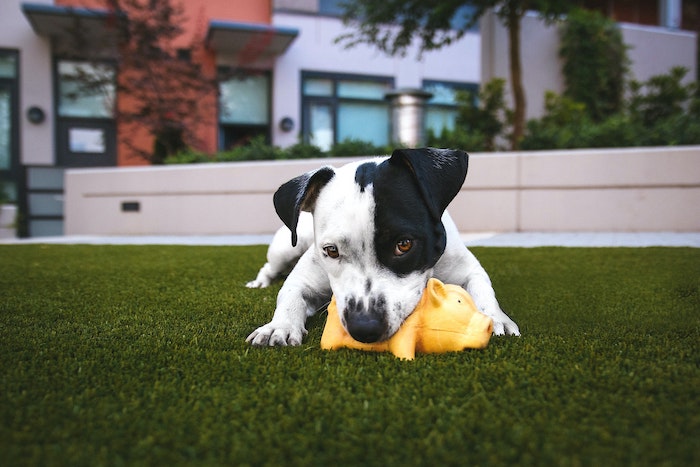Owning a dog is often portrayed as a delightful experience filled with wagging tails, loyal companionship, and heartwarming moments. While these aspects are undeniably true, the reality of being a dog owner goes beyond the picturesque scenes we often see in movies and social media. Dogs bring immense joy, but they also demand time, effort, and responsibility. In this exploration of the multifaceted reality of being a dog owner, we will delve into the challenges, rewards, and unexpected lessons that come with the territory.

Pet Supplies
Pet supplies play a crucial role in ensuring the well-being of our canine companions. Quality dog food, appropriate grooming tools, comfortable bedding, and durable toys are essential items for every dog owner. The right supplies contribute to a dog’s physical health, mental stimulation, and overall happiness. Choosing the right pet supplies in Calgary involves understanding the specific needs of your dog, considering factors such as breed, size, age, and health conditions. Consultation with a veterinarian can provide valuable insights into dietary requirements and other health considerations. Investing in high-quality pet supplies may seem like an additional expense, but it can significantly impact your dog’s overall well-being and reduce the likelihood of health issues in the long run
Expect Lots of Exercise
Dogs are inherently active creatures, and expecting them to be couch potatoes is a misconception that can lead to behavioral issues. Exercise is not only crucial for your dog’s physical health but also for their mental well-being. The amount of exercise a dog needs can vary based on factors like breed, age, and overall health, but all dogs benefit from daily physical activity.
Regular walks are crucial to a pet’s exercise routine. The length and intensity of these walks depend on the breed and age of your dog. High-energy breeds such as Border Collies, Labrador Retrievers, or Australian Shepherds may require more vigorous exercise, including activities like running or playing fetch. On the other hand, smaller or older dogs may thrive with shorter, more leisurely strolls. For that reason, it’s crucial for prospective dog owners to assess their own lifestyle and energy levels before choosing a breed. If you lead an active lifestyle and enjoy outdoor activities, a more energetic breed might be a suitable match. However, if you prefer a more relaxed pace, consider a breed with lower energy requirements.
Understanding and meeting your dog’s exercise needs not only contributes to their physical health but also strengthens the bond between you and your furry friend. Regular exercise helps prevent obesity, improves cardiovascular health, and reduces the risk of behavioral problems caused by excess energy.

Bathroom Time
Another significant aspect of being a dog owner is addressing their bathroom needs. Puppies, in particular, require careful attention to establish a consistent routine for house training. Be prepared for frequent bathroom breaks, especially after meals, waking up, or playtime.
Consistency is key when house training a puppy. Establish a regular schedule for bathroom breaks, and be patient as your puppy learns where and when it’s appropriate to relieve themselves. Accidents are inevitable during the training process, so a forgiving attitude and positive reinforcement are essential. For adult dogs, maintaining a consistent bathroom routine is equally important. This involves regular walks, allowing your dog access to an outdoor bathroom area, or creating a safe space with indoor options for apartment living. Adequate waste disposal is part of responsible dog ownership, ensuring a clean living environment for both you and your canine companion.
In addition to regular bathroom breaks, it’s essential to monitor your dog’s health for any signs of urinary or digestive issues. Changes in bathroom habits, such as difficulty urinating or diarrhea, may indicate underlying health concerns that require prompt attention from a veterinarian.
Bed Time
Sleep is a vital aspect of a dog’s overall well-being, and establishing a consistent bedtime routine contributes to their physical and mental health. While individual sleep patterns may vary among breeds and individual dogs, creating a comfortable and secure sleeping environment is essential. Puppies, like human infants, often require more sleep than adult dogs. Establishing a bedtime routine for a puppy may involve crate training, providing a secure and comfortable space where they can rest undisturbed. The crate should be appropriately sized to allow the puppy to stand, turn around, and lie down comfortably. For adult dogs, having a designated sleeping area is crucial for routine and security. Whether it’s a cozy bed in a quiet corner of the house or a specific room, ensuring that your dog has a comfortable and safe place to sleep contributes to their overall well-being.
Understanding your dog’s unique sleep patterns is essential for fostering a healthy sleep routine. Some dogs may be more active during the day and sleep soundly at night, while others may have different preferences. Pay attention to your dog’s cues and adjust their bedtime routine accordingly.

Play Time Issues
While playtime is an essential aspect of building a strong bond with your dog, potential issues may arise during these interactions. Understanding your dog’s body language and behaviors is crucial for fostering positive play experiences and preventing any conflicts that may arise. Some dogs may exhibit signs of aggression or excessive roughness during play. It’s essential to differentiate between normal play behaviors and actions that may lead to problems. If play becomes too rough or if there are signs of discomfort, it’s important to intervene and redirect the interaction in a positive way.
Socialization is another key component of playtime, especially for puppies. Proper exposure to different environments, people, and other animals helps build a well-adjusted and confident dog. However, improper socialization or traumatic experiences during play can lead to behavioral problems later in life. Responsible dog ownership involves facilitating positive play experiences and addressing any issues promptly. Furthermore, providing appropriate toys is essential to prevent destructive behaviors. Dogs may resort to chewing furniture or belongings if they don’t have suitable outlets for their natural chewing instincts. Offering a variety of toys, including chew toys and puzzle toys, keeps your dog mentally stimulated and prevents boredom-induced destructive behaviors.
Puppy Ownership Costs
The decision to bring a puppy into your home comes with not only emotional rewards but also financial responsibilities. Puppy ownership costs encompass various aspects, from initial adoption or purchase fees to ongoing expenses like veterinary care, food, grooming, and supplies. One of the initial costs of puppy ownership is the adoption or purchase fee. Adoption fees from shelters or rescue organizations are typically lower than purchasing a puppy from a breeder. However, both options involve an upfront cost that varies based on factors such as the breed, age, and location.
Veterinary expenses are a significant ongoing cost of puppy ownership. Puppies require vaccinations, routine check-ups, and preventive measures such as spaying or neutering. Unexpected medical emergencies may also arise, emphasizing the importance of budgeting for veterinary care throughout your dog’s life.
Nutrition is a critical aspect of puppy ownership costs. Young dogs, commonly known as puppies, have distinct nutritional needs essential for fostering their growth and overall development. High-quality puppy food may cost more than regular adult dog food, and the quantity and frequency of feeding depend on factors like the puppy’s breed and size.
Grooming costs should also be considered, especially for breeds with specific grooming needs. Regular grooming helps prevent issues such as matting, skin infections, and overgrown nails. Depending on the breed, grooming may involve professional services or at-home maintenance, but it’s an integral part of responsible dog ownership.
The Joys and Challenges of Companionship
Dogs are renowned for their unwavering loyalty and companionship. The sheer joy of coming home to a wagging tail and eager eyes is unparalleled. The bond between a dog and its owner is often a source of emotional support, reducing stress and loneliness. The companionship provided by dogs has even been linked to improved mental health, as they offer unconditional love and a non-judgmental presence.
However, the joy of companionship comes with its own set of challenges. Dogs require attention, care, and consistent training. From daily walks to regular playtime, the responsibility of meeting a dog’s needs can be time-consuming. Moreover, dogs can suffer from separation anxiety, leading to destructive behaviors when left alone. Balancing the desire for companionship with the demands of a busy lifestyle is a significant consideration for prospective dog owners.
The Emotional Toll of Aging and Farewell
As dogs age, their health needs may change, and owners may find themselves faced with difficult decisions regarding medical care and end-of-life considerations. The emotional toll of witnessing a beloved companion’s age and dealing with the inevitable farewell is one of the most challenging aspects of being a dog owner. The bond forged over years is deep, and saying goodbye to a loyal friend is a heart-wrenching experience that every dog owner must eventually face.
Final Word
Being a dog owner is a journey filled with love, companionship, and shared moments. However, the responsibilities extend beyond the emotional connection, encompassing crucial aspects such as exercise, bathroom breaks, and bedtime routines. Expecting lots of exercise, being attentive to bathroom needs, and establishing a comfortable sleep routine are fundamental elements of responsible dog ownership. Before embarking on the journey of being a dog owner, it’s essential to educate yourself on the specific needs of the breed you choose and be prepared to invest time and effort into meeting those needs.
